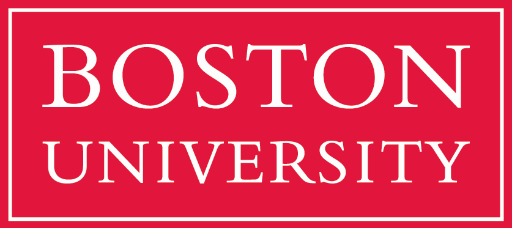Boston University Henry M Goldman School of Dental Medicine
- Massachusetts
- Endodontics
- bu.edu

Program Contact
Boston University Henry M. Goldman School of Dental Medicine
Postdoctoral Admissions
635 Albany Street, G-146
Boston, Massachusetts, 02118
Please visit our program websites:
http://www.bu.edu/academics/sdm/departments/endodontics/
http://www.bu.edu/dental/academics/departments/endodontics/
Endodontology is the branch of dentistry that is concerned with the biology, physiology, pathology, and treatment of the dental pulp and periradicular tissues. The Department of Endodontics at Boston University Henry M. Goldman School of Dental Medicine provides students with intensive and comprehensive training in clinical endodontics including non-surgical and surgical endodontics and correlated basic and medical sciences. It also trains students in other dental subjects that are related to endodontic practice. Dr. Herbert Schilder’s warm gutta percha vertical compaction technique is taught and practiced in the clinics. The department emphasizes integration of research training into their clinical training. Research areas include clinical outcome studies using cone beam CT, regenerative endodontics, dental stem cell biology and tissue engineering.
CAGS (Certificate of Advanced Graduate Study) in Endodontics
http://www.bu.edu/academics/sdm/programs/endodontics/cags/
The CAGS in endodontics is designed to meet the formal educational standards of the American Dental Association Commission on Dental Accreditation and prepare the resident for successful completion of board certification by the American Board of Endodontics. Intensive training is given in clinical endodontics and correlated basic and medical sciences, and in other dental subjects related to the practice of endodontics. Supervised clinical training encompasses both surgical and nonsurgical endodontics, ensuring clinical proficiency in these areas. Extensive opportunities exist for combined treatment of endodontic-periodontic problems and for endodontic management of teeth involved in major oral rehabilitative procedures. All students must be prepared to meet the scholarly requirements that familiarize them with the development of endodontic theory and practice and an evidence-based approach that permits an intelligent evaluation of current and future technologies and materials. Each student must participate in research and the research project must be compiled into a document suitable for publication.
MSD (Master of Science in Dentistry) +CAGS in Endodontics
http://www.bu.edu/academics/sdm/programs/endodontics/msd/
The MSD in Endodontics is a three-year program in which a Master of Science in Dentistry is combined with a CAGS in Endodontics. During the first year of the program, the student partakes in a research project, while during the second and third years, the student participates in the CAGS program and completes his/her research project and master’s thesis. Completion of the MSD is required for granting of the CAGS.
DScD (Doctor of Science in Dentistry) + CAGS in Endodontics
http://www.bu.edu/academics/sdm/programs/endodontics/dscd/
The DScD in Endodontics is a five-year program in which a Doctor of Science in Dentistry is combined with a CAGS in Endodontics. The course of study is developed by the chair of the Department of Endodontics and the student’s research mentor. Completion of the DScD is required for granting of the CAGS.
Program Information
| Accreditation | This program is accredited by CODA |
|---|---|
| Program Type | Endodontics |
| Program Code | ENDO29 |
| Degrees Offered | Certificate, Masters, Other |
| Program Size | 10 (estimate) |
| Program Length | 24-60 months |
| Application Deadline | August 1 |
| Program Start Date | July 1 |
| Supplemental Application | No |
| Supplemental Fee | Yes |
| Stipend Offered | No |
| Match Participating | No |
| Program Website | bu.edu |
Application Requirements
Required Standardized Tests
- INBDE
- NBDE1
- NBDE2
- TOEFL
- Passing the INBDE before the advanced dental education program deadline
Supplemental Requirements
- Requires supplemental fee
Transcript Evaluation and Instructions
U.S./Canadian applicants must provide their undergraduate transcript(s) within the PASS application. Unofficial copies of undergrad transcripts uploaded by the applicant may be used for application purposes, but official transcripts are required for matriculation.
International applicants must submit either the ECE or WES dental school transcript course-by-course translation and evaluation directly through PASS.
TOEFL Requirement Instructions
TOEFL is required for all applicants who are not US citizens or US Lawful Permanent Residents, and whose first language is not English. Request official TOEFL scores from ETS in the ADEA PASS application. Only official scores are considered.
- Minimum score is 90 iBT.
- TOEFL iBT Home Edition is accepted.
- TOEFL Essentials is NOT accepted.
- IELTS is NOT accepted.
*Starting January 2026, a new 1-6 scale will be implemented. The new minimum score will be 4.5. Legacy 0-120 scores will still be supported up until January 2028.
Other Requirement Instructions
INBDE or NBDE Part 1 & 2 passing result is required for all applicants.
International Student Eligibility
Applicants are eligible to enroll if they are:
- US Citizen
- US Permanent Resident
- Canadian Citizen
- Canadian Permanent Resident
- Non-US Citizen/Resident (program offers sponsorship)
Additional Information
Request official test results within the ADEA PASS application. Do not send official scores or documents to Boston University unless requested.
